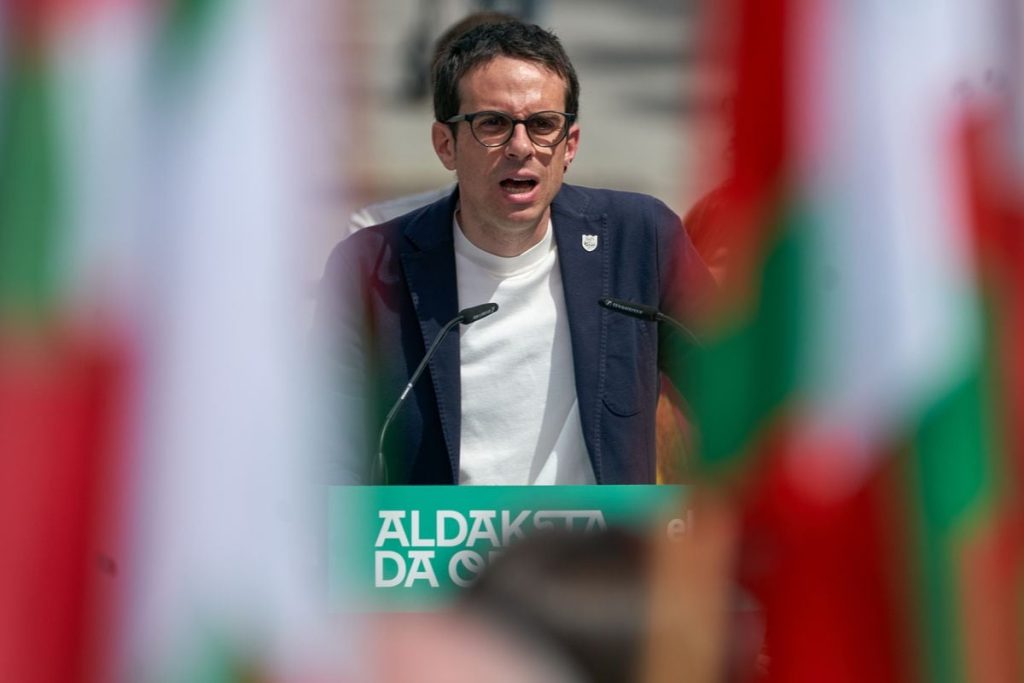EH Bildu’s electoral image has been tarnished by their candidate’s reluctance to condemn ETA’s terrorist past. Pello Otxandiano, the candidate for lehendakari, stumbled when asked directly about ETA, responding evasively. This hesitation has harmed EH Bildu’s strategy of moderation and low profile in the lead-up to the Basque elections. Otxandiano attempted to navigate the controversy by referencing state violence and police torture, but his refusal to denounce ETA’s violent history has raised doubts about the party’s stance on terrorism.
The backlash against Otxandiano’s comments has been swift, with other political parties and victims of ETA terrorism condemning EH Bildu’s lack of clarity on the issue. The Socialist candidate Eneko Andueza criticized Otxandiano for his vague response, calling him a coward. The Government and other parties have also expressed disappointment in EH Bildu’s handling of the issue, with the Socialists accusing them of disrespecting the victims and Spanish society as a whole. The controversy has also provided an opportunity for the PP to criticize the government’s alliances with EH Bildu.
Political analysts suggest that EH Bildu’s reluctance to address ETA’s past may be driven by internal tensions and the fear of alienating certain factions within their base. By avoiding a clear condemnation of ETA’s terrorism, they risk a potential schism within the party. However, the broader implications of this controversy on EH Bildu’s electoral prospects remain uncertain, as the party had been leading in the polls prior to this incident.
The debate on ETA’s legacy has reignited tensions in the Basque Country, with various parties and victims’ associations calling on EH Bildu to unequivocally condemn the terrorist group. This controversy has exposed EH Bildu’s failure to confront their past associations with ETA, raising questions about their commitment to democratic values and reconciliation. The polarized reactions to Otxandiano’s comments highlight the deep-seated divisions within Basque society regarding the legacy of ETA’s violence.
As the election campaign intensifies, the focus on EH Bildu’s stance on ETA’s past could have significant implications for the outcome of the vote. While some analysts suggest that the controversy may not drastically impact the party’s electoral chances, others argue that EH Bildu’s handling of this issue could sway undecided voters. The narrative surrounding ETA’s history remains a contentious issue in Basque politics, reflecting a broader struggle to reconcile with the region’s violent past.
Overall, EH Bildu’s handling of the debate on ETA’s legacy has exposed internal divisions within the party and raised doubts about their commitment to democratic principles. The controversy over Otxandiano’s comments has underscored the challenges of addressing the region’s traumatic history and the need for a more nuanced and inclusive dialogue on the legacy of terrorism in the Basque Country. The outcome of the elections will likely hinge on how voters perceive EH Bildu’s response to this contentious issue and their ability to navigate the complex terrain of Basque politics.


